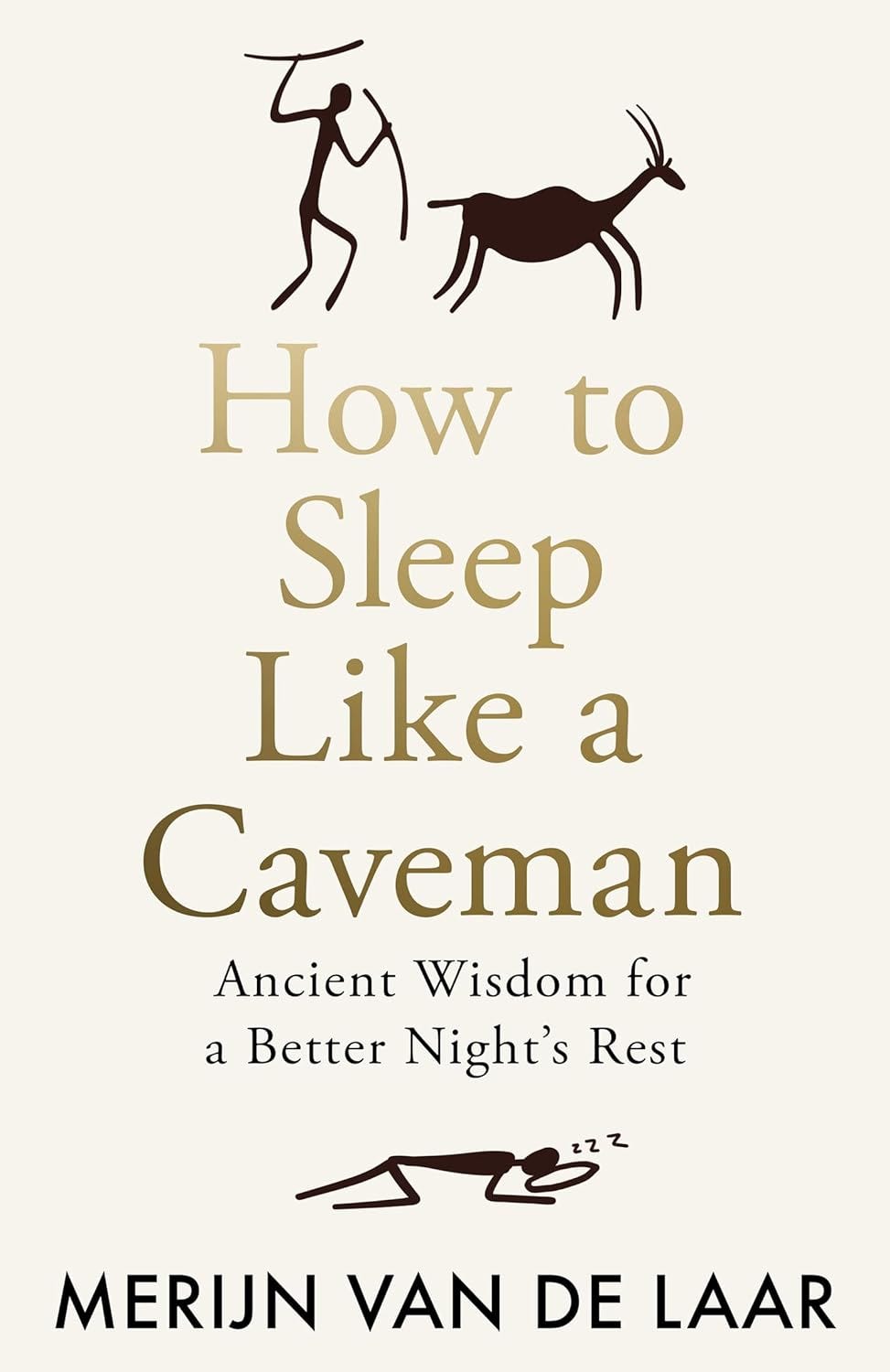Sleep is a magical phenomenon. When you are a good sleeper, you close your eyes and, before you know it, you go on a journey into a wonderful world beyond full consciousness.
Sleep has hardly changed since Paleolithic humans snoozed soundly in their caves. While sabre-toothed tigers were their biggest night-time worry, today it’s stress and social media that keep us awake, but the solutions are the same, and sleep therapist Dr Merijn van de Laar offers understanding and advice to have you sleeping better within weeks.
Published in Jan 2025, the book offers mixes ancient wisdom on sleep with today’s reality - a must listen if you want to improve on your sleep quality.
How to get a better night’s sleep in 3 weeks:
Don’t believe everything you read or hear about sleep
Let go of the 8-hour rule
Use the simple sleep diary in the back of this book to record your sleep pattern over 3 weeks
Discover your personal sleep needs
Examine your attitude towards lying awake at night
Shorter total bed times might be better
Focus on the reason for lying awake rather than on the reason for not sleeping
Reduce stress
Keep regular bedtimes
Follow the rules of nature
Respect your personal circadian rhythm
Don’t tempt the night-time ghosts
Human sleep as we know it today evolved hundreds of thousands years ago, to suit a hunter–gatherer lifestyle. It’s not always compatible with our modern lives, but remains an essential function, vital for our health, well-being and daytime functioning. In this groundbreaking new book, Dr Merijn van de Laar investigates the origins of sleep based on archaeological findings and anthropological studies in contemporary hunter-gatherers, looking at the major discrepancies between our primordial bodily needs and our current sleep-inhibiting behaviour.
Cave dwellers lived in balance with the forces of nature. They had adapted perfectly to environmental influences such as light, temperature and seasonal variations. The way they ate and moved during the day must have had a positive effect on sleep quality. We need to look to their example, and adjust our eating, exercise, light, temperature and, last but not least: our expectations towards sleep. By taking on board the ancient wisdom of our ancestors, we will improve the quality of our sleep, the way our bodies were designed to do it.
Evolutionary perspective on sleep: The book explores how sleep patterns and behaviors have evolved from prehistoric times to modern society, highlighting the differences and similarities between the sleep of ancient hunter-gatherers and contemporary humans.
Understanding sleep: The book provides a detailed explanation of the different stages of sleep, the biological clock, and factors influencing sleep, including light, temperature, diet, and social relationships.
Insomnia and sleep disorders: The book delves into the causes and perpetuating factors of insomnia, discussing various sleep disorders and offering evidence-based strategies for improving sleep quality.
Relaxation and mindfulness: The book emphasizes the importance of relaxation and mindfulness techniques in achieving restful sleep, providing practical exercises and guidance.
Modern sleep challenges: The book addresses the impact of modern lifestyle factors on sleep, including technology use, artificial light, shift work, and societal expectations, offering practical tips for navigating these challenges.
Most Important Ideas & Facts:
Sleep in Prehistoric Times:
Prehistoric humans slept on the ground or in nests in trees for protection from predators.
Individual sleep differences within a tribe likely contributed to overall safety, with some individuals remaining more vigilant while others slept.
"Individual sleep differences were probably very important for the safety of the tribe. [32] When you doze off, you are quite vulnerable to danger because you have less perception of your surroundings. As a result, you react more slowly to threats."
The Hadza tribe, a contemporary hunter-gatherer group, exhibits flexible sleep-wake patterns and does not experience anxiety about occasional wakefulness during the night.
Sleep Stages & Biological Clock:
Sleep consists of cycles alternating between NREM (non-rapid eye movement) and REM (rapid eye movement) stages, with deep sleep predominantly occurring in the early part of the night.
An internal biological clock regulates our sleep-wake cycle, influencing our natural sleep timing preferences (larks vs. night owls).
"This is the influence of your biological clock. Many people have heard of this structure, but what is it exactly and where is it located in the body?"
Insomnia & Sleep Reactivity:
Insomnia is often maintained by negative thoughts and behaviors related to sleep, such as worrying about not getting enough sleep.
Sleep reactivity refers to the degree to which stress and environmental changes negatively impact sleep, potentially predisposing individuals to insomnia.
"These are the behavioural or cognitive patterns such as fretting about lying awake, napping during the day and lying in bed for long periods. We also try to control our sleep as much as possible, for example, by constantly checking what time it is and sometimes having sky-high expectations about sleeping continuously. This leads to less restful wake. [6]"
Impact of Light & Temperature:
Exposure to artificial light at night, especially blue light from electronic devices, can disrupt melatonin production and delay sleep onset.
A cool bedroom temperature (between 15.5 and 20.5 degrees Celsius) promotes better sleep quality.
"Almost all light has an effect on sleep quality and on our circadian rhythm, but in most cases the light intensity, or lux, is especially important: 1 lux equals the light of 1 candle that is 1 metre away."
Diet & Exercise:
A balanced diet and regular exercise can contribute to better sleep.
Consuming large amounts of carbohydrates and fats close to bedtime can negatively affect sleep.
"Eating a bag of potato chips just before going to bed does not seem to be beneficial for your sleep. If you eat a lot of carbohydrates and fats within an hour of going to bed, this can lead to objectively staying awake longer. [129]"
Social Relationships & Sleep:
Co-sleeping can have both positive and negative impacts on sleep quality, depending on individual preferences and relationship dynamics.
Loneliness and lack of social support are associated with poorer sleep.
"What effect does a romantic partner have on your night’s rest? Is it better to sleep alone or with a partner or pet in the bed? What effect do loneliness, friendships and work satisfaction have on your sleep?"
Relaxation & Mindfulness Techniques:
The book provides practical exercises for relaxation and mindfulness, including deep breathing, visualization, and progressive muscle relaxation, which can help reduce anxiety and promote sleep.
Mindfulness involves cultivating a non-judgmental awareness of the present moment, helping individuals detach from worries and ruminations that interfere with sleep.
"It is good to go through this exercise a few times during the day at first. You can then try doing it just before you go to sleep. Imagine lying down in that place and always remember that you are completely safe there."
Stimulants & Sleep:
Caffeine, nicotine, alcohol, and other stimulants can negatively impact sleep quality and worsen insomnia symptoms.
The book discusses the effects of various drugs on sleep, emphasizing the importance of moderation and awareness of potential side effects.
"Cannabis appears to have varying effects on sleep, depending on the dosage and use of components (CBD or THC), and might have a positive effect on subjective sleep in people with chronic pain complaints."
Sleep Restriction Therapy:
Sleep restriction therapy, involving temporarily reducing time spent in bed to consolidate sleep and increase sleep efficiency, can be an effective treatment for insomnia.
The book provides a step-by-step guide for implementing sleep restriction safely and effectively.
"Can you perform sleep restriction on your own? Yes! In most cases, this is very effective and safe. However, in people who have epilepsy or severe psychiatric disorders, it is important to consult with your GP or health practitioner before starting the method."
Future of Sleep:
The book concludes with a look at emerging technologies and trends that may shape the future of sleep, including sleep tracking devices, AI-powered sleep aids, and personalized sleep interventions.
It highlights the continued importance of prioritizing sleep for overall health and well-being.
"To understand how sleep affects your emotions, it is important to know that an emotion consists of two dimensions: value and arousal. The value has to do with how positive or negative the emotion is. The arousal says something about the intensity of the emotion; it can be low, medium or high."
Overall, "How to Sleep Like a Caveman" offers a comprehensive and engaging exploration of sleep, combining evolutionary insights, scientific evidence, and practical advice to help readers understand and improve their sleep.
It encourages readers to re-evaluate their sleep habits and adopt strategies inspired by our ancestors' relationship with sleep, while acknowledging the unique challenges of modern life. The book is written in an accessible style, making complex scientific concepts easy to understand, and includes personal anecdotes from the author's own experiences with sleep.











